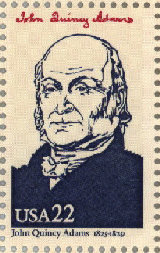The Investigation

|
Later reports from New Hampshire dealt with the same accusations as Kentucky yet Biddle still responded to the charges in a negative fashion[30]. He firmly denied all allegations to the effect and, in a letter dated January 9, 1829, he told McClean that he agreed with the fact that the Bank should remain free of any political involvement but he proceeded to deny that the Bank or any of its members had done so[31]. To Jackson however, the issue of whether or not the Bank held or intended to hold political influence was secondary. The fact remained that the Bank held too much power and not even its advocates were able to deny this[32].
Biddle's refusal to actively investigate the allegations against the Bank were beginning to be self inflicted wounds. After the questioning of the Portsmouth, New Hampshire branch, Biddle conducted a personal inquiry which was little more than pure window dressing[33]. His visit to 'investigate' the president of the Portsmouth branch, Jeremiah Mason was Biddle's way of both attempting to silence opponents who questioned whether or not he wanted to get to the truth, and also belittling them by calling them "small bankrupts and [even] smaller demagogues.[34]" The 'small bankrupts,' however, countered Biddle with a bold and effective move when Secretary of War, John Eaton announced to Mason that the pension fund would no longer be handled at Portsmouth but in Concord instead[35]. With Biddle's instructions to Mason to refuse Eaton's request to transfer the funds, an intense, head to head struggle began between Biddle, who believed that the administration wanted him to please them, and Jackson who felt that the Bank war was about the common man fighting the aristocracy[36].
Jackson set his intentions on presenting the matter before Congress in December of 1829 but Biddle still had one fact on his side and that was that Jackson was in no real position to meddle with the current system of currency or credit as he had no alternative to offer[37]. Jackson's message to Congress on December 7 was short but it implored the legislature to recognize the unconstitutionality of the present Bank and if such an institution were deemed vital, to set a reform program into motion. This presentation made Jackson's position clear and a matter of public record[38].
